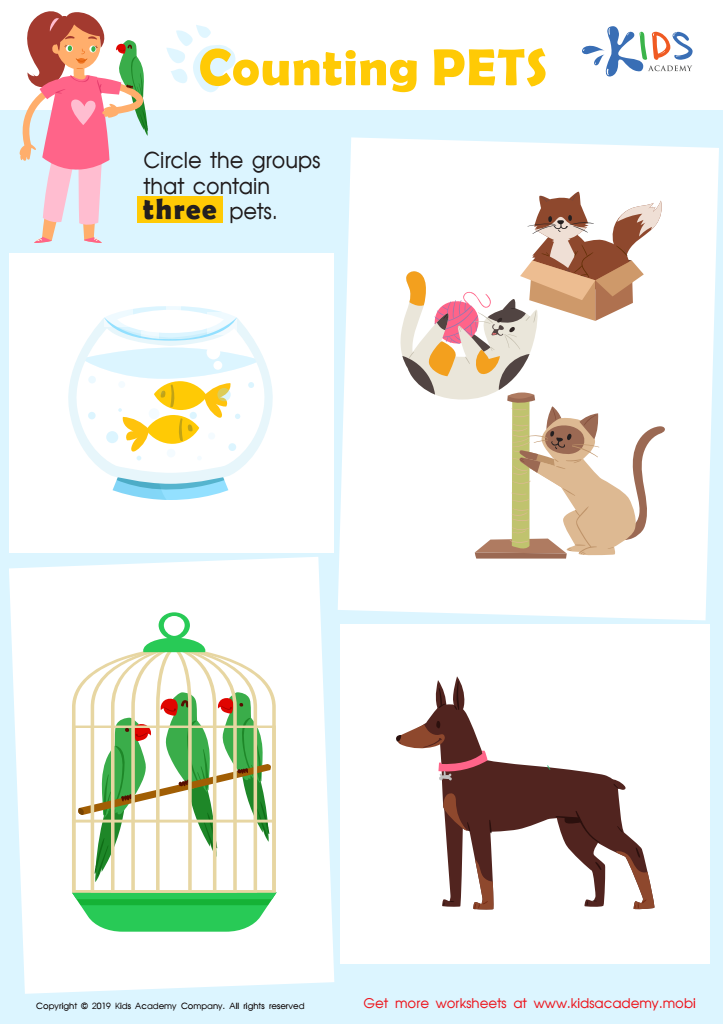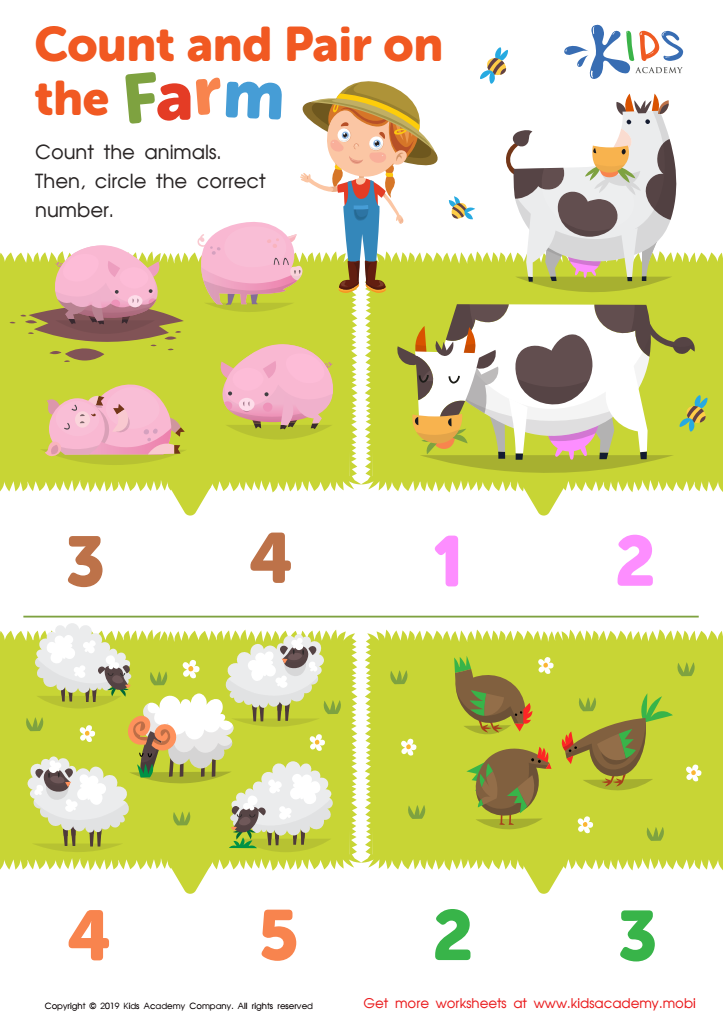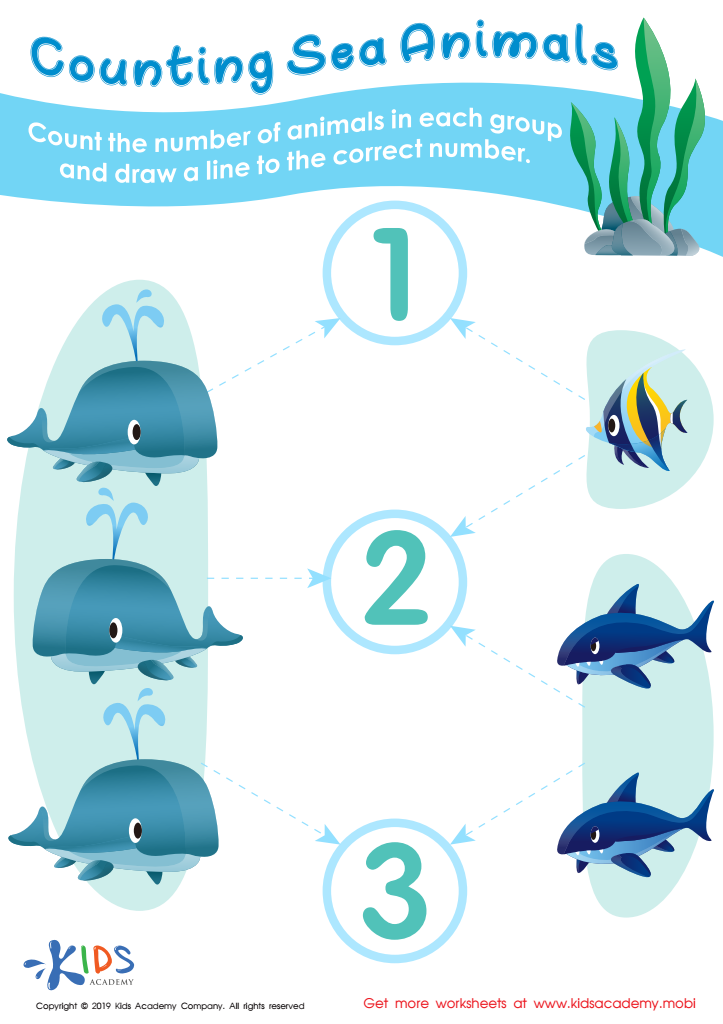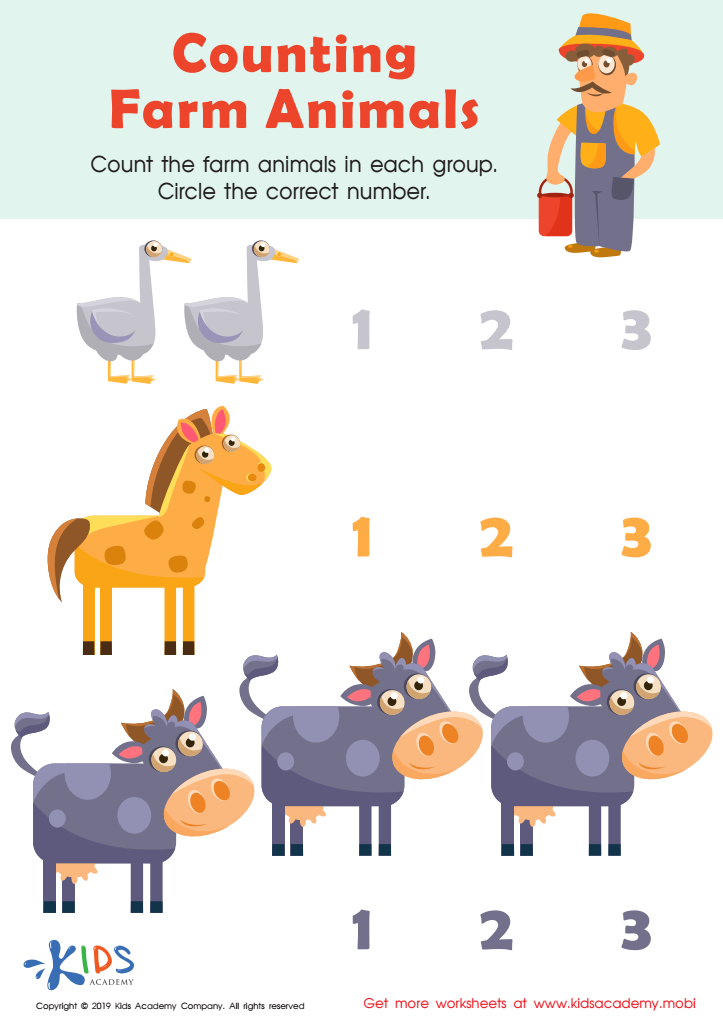Animal recognition Normal Numbers Worksheets for Ages 4-5
4 filtered results
-
From - To
Welcome to our engaging "Animal Recognition Normal Numbers Worksheets" for children aged 4-5! These colorful and interactive worksheets are designed to help young learners combine number recognition with fun animal themes. Each worksheet encourages kids to identify animals while practicing their counting and number writing skills. Perfect for preschool and kindergarten classrooms, these activities foster both cognitive development and fine motor skills in little hands. With a variety of exercises, children will not only learn numbers but also enhance their understanding of the animal kingdom. Explore our collection today and make learning numbers a delightful adventure!


Counting Pets Worksheet


Count and Pair on the Farm Worksheet


Counting Sea Animals Worksheet


Counting Farm Animals Worksheet
Animal recognition and number formation are foundational skills for children ages 4-5, significantly influencing their cognitive and social development. At this age, children are naturally curious and eager to learn about the world around them, and incorporating animals into learning can harness this curiosity and make lessons engaging and relatable. Understanding different animals helps children develop their observational skills, language abilities, and knowledge about biodiversity, fostering a connection with nature.
Moreover, introducing normal numbers alongside animal recognition allows children to practice counting and numeracy in a fun context. For instance, counting different animals in a picture reinforces number understanding while also providing an opportunity for collaborative activities where children can share their observations and ideas. This approach promotes critical thinking and enhances social interaction, as children work together to count and categorize animals.
Parents and teachers should prioritize these activities as they cultivate foundational math skills and promote curiosity in learning. Additionally, early exposure to such themes can inspire a lifelong love for learning, nature, and science. Ultimately, focusing on animal recognition and normal numbers not only benefits children's immediate learning but also prepares them for future academic success and a deeper appreciation of the environment.
 Assign to My Students
Assign to My Students




















